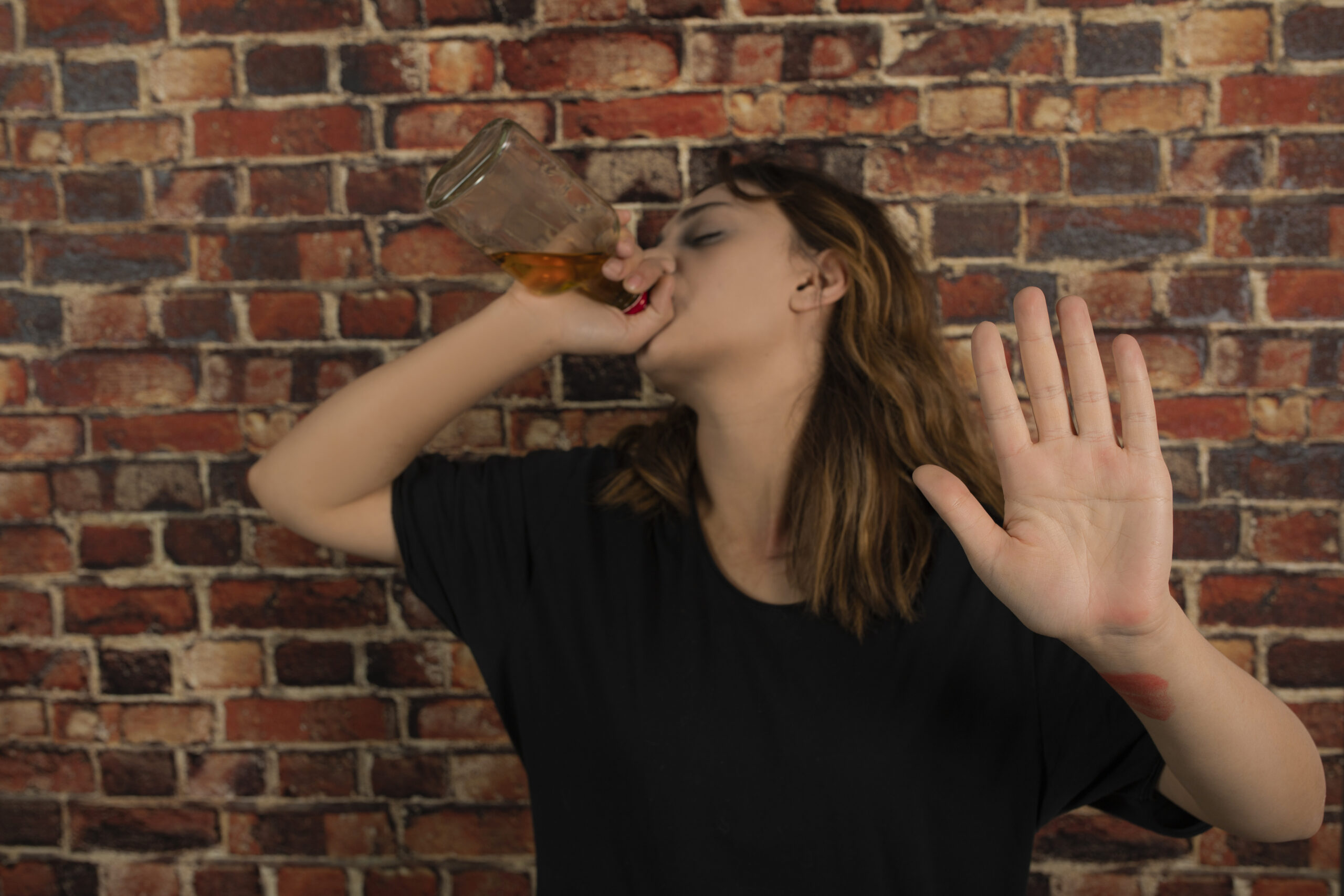Introduction
Muscle cramps are sudden, involuntary contractions of one or more muscles that can cause significant pain and discomfort. These cramps can occur for various reasons, including dehydration, poor circulation, and electrolyte imbalances. However, many people overlook the role of alcohol in muscle health. Alcohol consumption can contribute to muscle cramps and other muscular issues through dehydration, nutrient depletion, and impaired muscle function. In this article, we explore how alcohol affects your muscles and why drinking can lead to cramping and muscle discomfort.
How Alcohol Affects Muscle Health
Alcohol has numerous effects on the body, many of which can negatively impact muscle function. These effects include dehydration, electrolyte imbalances, reduced muscle recovery, and potential nerve damage.
1. Dehydration and Muscle Cramps
One of the primary ways alcohol contributes to muscle cramps is by causing dehydration. Alcohol causes fluid loss and raises urine output since it is a diuretic. When the body loses too much water, it disrupts the balance of electrolytes—such as sodium, potassium, and magnesium—which are crucial for muscle contraction and relaxation.
- Increased Urine Output: Alcohol inhibits the release of antidiuretic hormone (ADH), leading to frequent urination and loss of fluids.
- Loss of Electrolytes: Along with fluids, essential minerals that regulate muscle function are flushed out, increasing the risk of cramps.
- Muscle Tightness: Dehydration makes muscles more prone to involuntary contractions and tightness, contributing to painful cramps.
To minimize dehydration-related muscle cramps, it’s important to drink plenty of water when consuming alcohol and replenish lost electrolytes with hydrating foods and drinks.
2. Electrolyte Imbalances
Electrolytes are minerals in your blood that help regulate muscle function and nerve signaling. Alcohol disrupts electrolyte levels in the body, increasing the likelihood of muscle cramps. The key electrolytes affected by alcohol consumption include:
- Sodium and Potassium: These minerals help generate muscle contractions and nerve impulses. Excessive alcohol intake depletes these nutrients, leading to improper muscle function.
- Magnesium: This mineral helps muscles relax after contraction. Alcohol-induced magnesium deficiency can cause prolonged muscle spasms and cramps.
- Calcium: Necessary for muscle contractions, calcium deficiency due to alcohol use can result in muscle weakness and cramping.
Maintaining a diet rich in electrolyte-containing foods, such as bananas, leafy greens, nuts, and dairy products, can help counteract alcohol-related deficiencies.
3. Impaired Muscle Recovery
Alcohol consumption hinders muscle repair and recovery, making cramps and muscle pain more likely. Here’s how:
- Reduced Protein Synthesis: Alcohol interferes with the body’s ability to build and repair muscle tissues, prolonging soreness and increasing the risk of cramps.
- Increased Muscle Breakdown: Heavy drinking leads to muscle atrophy (breakdown), which weakens muscles and makes them more prone to cramping.
- Delayed Healing: Alcohol reduces the effectiveness of growth hormone and testosterone, both of which are crucial for muscle recovery and repair.
For those who exercise regularly or engage in strenuous physical activities, avoiding alcohol after workouts can help improve muscle recovery and reduce cramping.
4. Alcohol’s Effect on the Nervous System
The nervous system plays a critical role in muscle function, as nerves send signals to muscles to contract and relax. Alcohol affects the nervous system in several ways:
- Impaired Nerve Function: Chronic alcohol use can lead to neuropathy (nerve damage), which affects the way muscles receive signals from the brain, leading to spasms and cramps.
- Altered Reflexes: Alcohol slows down reaction times and coordination, making it more difficult for muscles to function efficiently.
- Involuntary Muscle Twitches: Alcohol-induced dehydration and nerve irritation can cause muscle twitches and spasms, which can develop into painful cramps.
People who experience frequent muscle cramps due to alcohol consumption should consider reducing their intake to support nerve and muscle health.
Alcohol and Muscle Performance
For athletes and fitness enthusiasts, alcohol can significantly impair muscle performance and recovery. Here’s why:
- Decreased Strength and Endurance: Alcohol negatively affects glycogen storage, which reduces energy levels and endurance.
- Increased Risk of Injury: Alcohol impairs coordination and balance, increasing the risk of muscle strains and injuries.
- Reduced Sleep Quality: Poor sleep due to alcohol consumption disrupts muscle recovery, leading to stiffness and cramping.
To optimize muscle performance, it’s best to limit alcohol intake, especially before and after physical activities.
The Long-Term Effects of Alcohol on Muscle Health
Chronic alcohol consumption can have severe consequences for muscle health over time. Long-term effects include:
- Muscle Wasting (Alcoholic Myopathy): Heavy alcohol consumption can lead to muscle atrophy, resulting in significant weakness and reduced muscle mass.
- Persistent Muscle Pain and Weakness: Long-term alcohol use can lead to chronic muscle pain and increased susceptibility to cramps.
- Increased Risk of Injuries: Alcohol weakens muscles and impairs coordination, making injuries more common and recovery slower.
- Peripheral Neuropathy: Alcohol-induced nerve damage can result in numbness, tingling, and increased muscle dysfunction.
Scientific Research on Alcohol and Muscle Function
Several studies have investigated the impact of alcohol on muscle health:
- A study published in the Journal of Applied Physiology found that alcohol consumption reduces muscle protein synthesis by up to 37%, impairing recovery and growth.
- Research from the American Journal of Clinical Nutrition suggests that alcohol disrupts hydration and electrolyte balance, leading to increased muscle cramps and fatigue.
- Studies on athletes indicate that alcohol impairs muscle glycogen storage, which is crucial for endurance and strength training.
These findings emphasize the importance of moderation and proper hydration when consuming alcohol to maintain optimal muscle function.
Practical Tips to Reduce Alcohol-Related Muscle Cramps
If you want to enjoy occasional drinks without suffering from muscle cramps, consider the following preventive measures:
- Stay Hydrated: Drink plenty of water before, during, and after alcohol consumption to prevent dehydration.
- Replenish Electrolytes: Consume electrolyte-rich foods and drinks to maintain proper muscle function.
- Avoid Excessive Drinking: Moderate alcohol consumption can help minimize muscle-related side effects.
- Prioritize Nutrition: Eat a balanced diet rich in vitamins and minerals that support muscle health.
- Exercise Regularly: Regular physical activity helps maintain strong and healthy muscles, reducing the risk of cramps.
- Get Quality Sleep: Ensure adequate rest to promote muscle recovery and prevent nighttime cramps.
- Limit Alcohol Intake Post-Workout: Avoid consuming alcohol immediately after exercise to allow muscles to recover effectively.
- Use Supplements If Needed: Magnesium and potassium supplements can help counteract muscle cramping in individuals who drink regularly.
Conclusion
Alcohol consumption can contribute to muscle cramps through dehydration, electrolyte imbalances, impaired muscle recovery, and nerve dysfunction. While occasional drinking may not cause significant harm, excessive alcohol intake can negatively impact muscle health and performance. By staying hydrated, replenishing essential nutrients, and practicing moderation, you can reduce the risk of alcohol-related muscle cramps and maintain overall muscle well-being.
If you experience frequent or severe muscle cramps, consider consulting a healthcare professional to determine underlying causes and appropriate treatment options.



